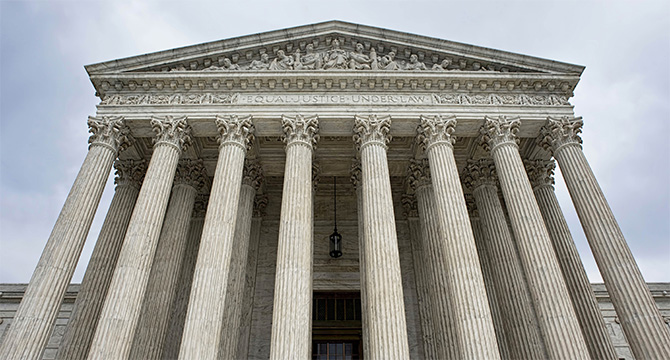
What keeps employers up at night? The prospect of collective action overtime lawsuits under the Fair Labor Standards Act (FLSA) is right at the top of the list of human resources nightmares.
While overtime and other wage and hour lawsuits aren’t going away any time soon, on April 2, 2018, the U.S. Supreme Court handed down a ruling that may spell relief for some employers.
The case at issue, Encino Motor Cars, LLC v. Navarro, involved a group of current and former service advisors working at a car dealership. The service advisors sued the dealership, arguing that it should have paid them overtime wages for any hours over 40 they worked in a workweek. The dealership denied the service advisors’ claim, pointing to language in the FLSA which provides an exemption to the overtime requirements for any “salesman, partsman, or mechanic primarily engaged in selling or servicing automobiles, trucks, or farm implements.” The Supreme Court ultimately concluded that, in fact, the dealership’s sales advisors were salesmen primarily engaged in servicing automobiles. This meant, of course, that the employer was correct in classifying them as exempt from entitlement to overtime pay.
Although this may not sound like much of a stretch, anyone who has dealt with an overtime lawsuit knows that whether or not your employees are going to be deemed to satisfy exemption criteria in a given case is often a wild card. This is because courts have generally “narrowly construed” exemptions, or applied them sparingly. By narrowly construing the meaning of the words used to describe each exemption, courts have often decided that exemptions do not apply in circumstances that, on their face, appear to fit well within the exemption. The approach of narrowly construing exemptions has caused significant uncertainty for employers who want to follow the law, but do not know whether a court would agree that a particular exemption applies to a certain job position.
The most significant aspect of the Encino Motor Cars case is how the Court reached its ruling. The Court veered from the longstanding approach of narrowly construing an exemption from overtime pay and instead noted that there is “no reason not to give [the exemptions] a fair reading.”
Employers should note, however, that this was not a unanimous opinion, with only five of the nine justices on the Court agreeing with this ruling. Although a changing of the tide appears to be on the horizon, employers should remain cautious and continue to weigh the risks and benefits of paying overtime to employees who may be exempt. It is not yet clear what a “fair reading” analysis will entail. And, even with a “fair reading,” there are still plenty of opportunities for a court to determine that a company has misclassified its employees. Further, applicable state wage and hour laws may continue to be enforced more narrowly.



